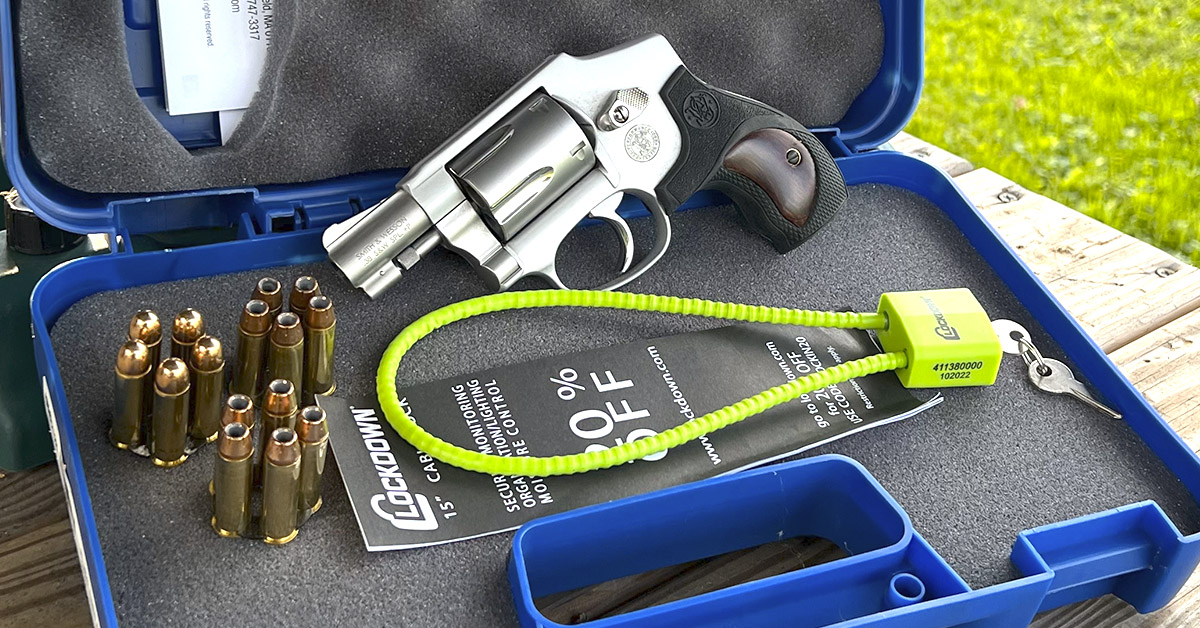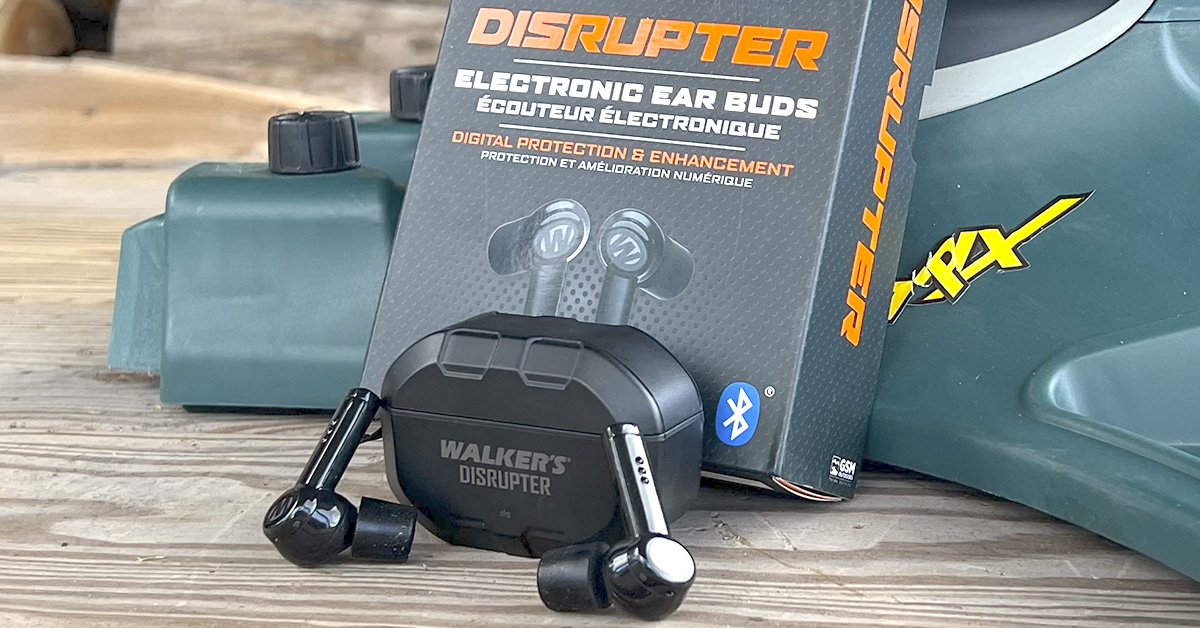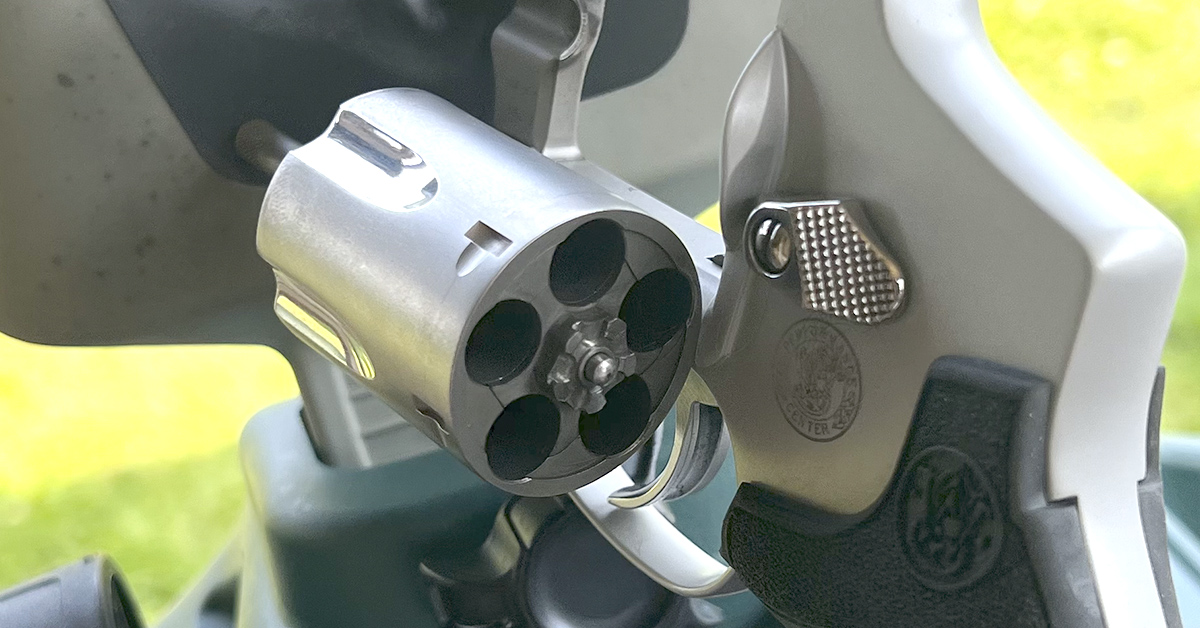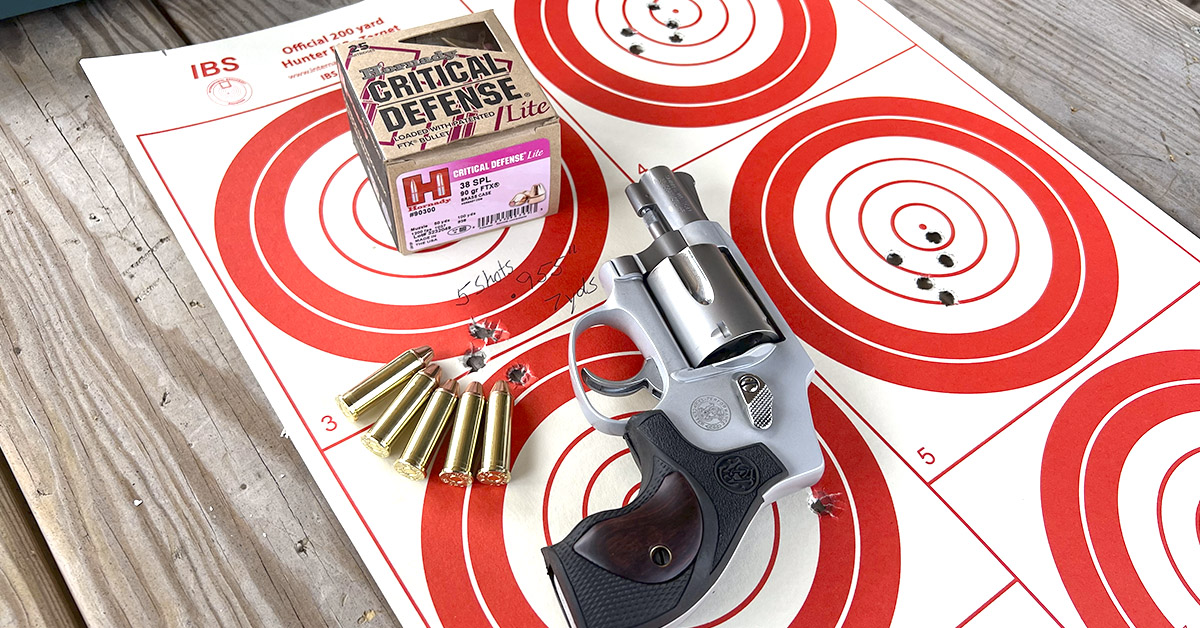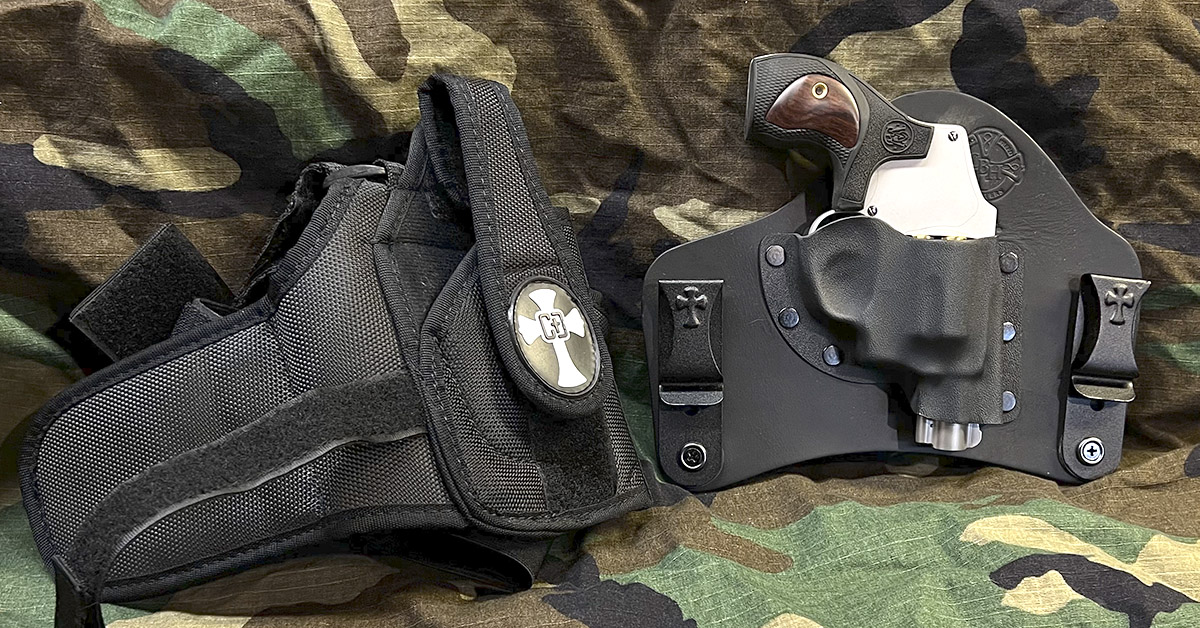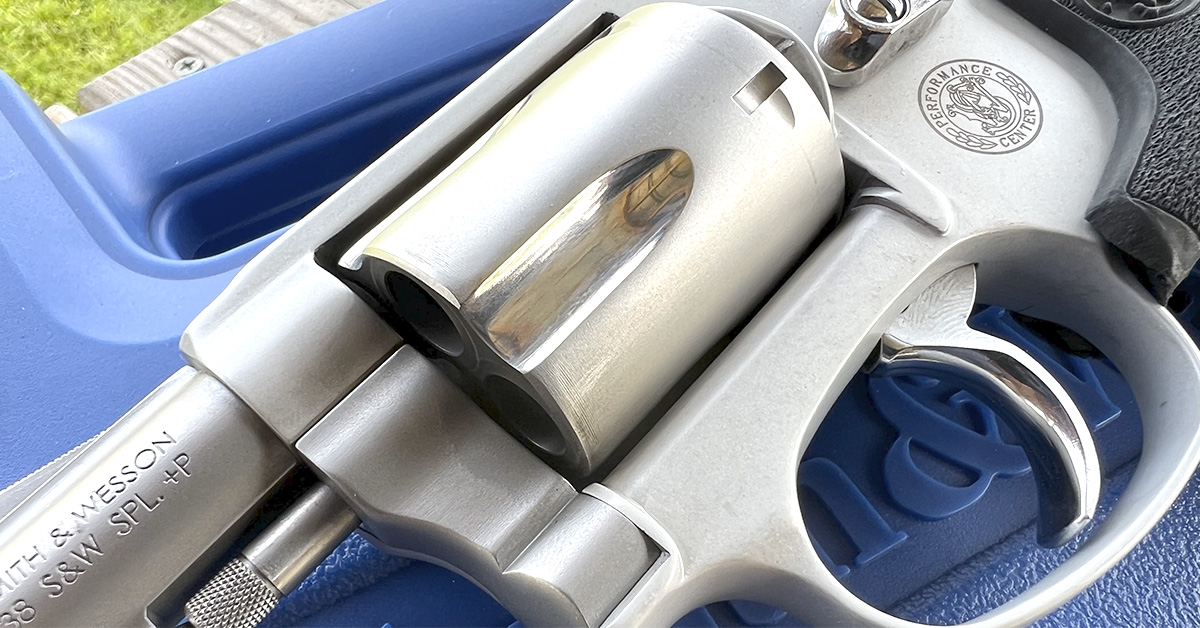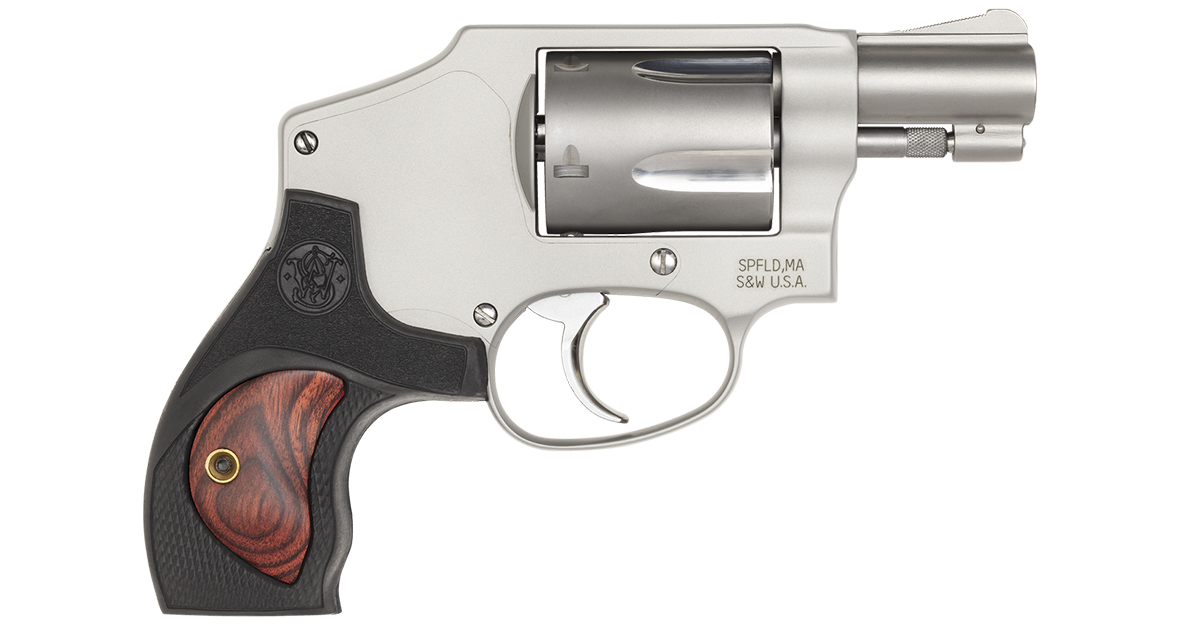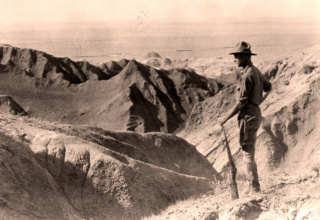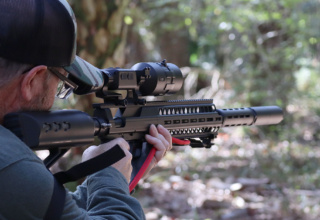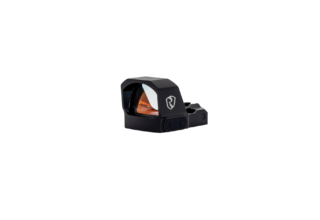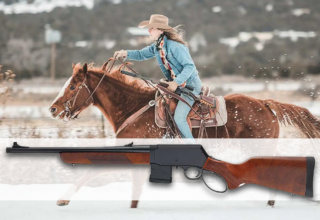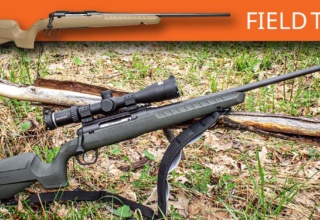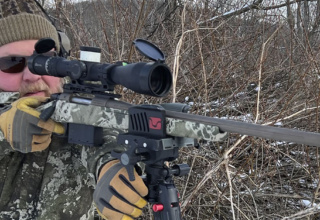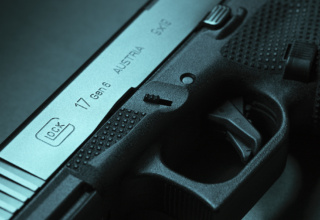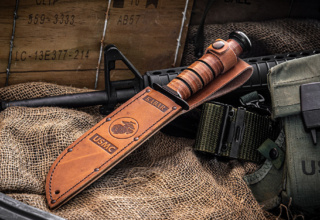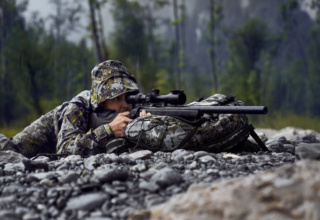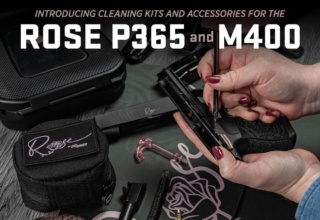This snub-nose 5-shot harkens back to the “original” concealed carry platforms, but with a modern, performance twist
by Jeromy Knepp
Since the dawn of firearms, fire superiority has been the game of who can carry the most firepower and use it effectively. Thank goodness for genius gun makers in the 19th century! The likes of Smith and Wesson, Samuel Colt, and Eliphalet Remington created some of the best six guns of the day. They gave us great cap-and-ball revolvers, later using self-contained cartridges such as the .38 and .41 Long Colt, .44-40 and .45 Colt. But, the size and weight of those early pieces meant they had to be carried for all to see.
Pocket Carry Begins
Revolvers on the hips make for a great movie; however, the times and needs for concealed carry were as real back in the day as they are now. Pocket Derringers of all calibers and sizes could be hidden. These types of firearms often came with one or two barrels loaded in anemic cartridges or a black powder load. These were generally cap-and-ball .41 caliber with rifled bores of varying lengths until the contained cartridges became popular. Like Milli Vanilli, they were one hit wonders…if you hit! But I digress. As one who has shot an early cap-and-ball Derringer, the .45 caliber with 15-20 grains of black powder could be a handful. Like the late, great Johnny Cash sang, “It can get you into trouble, but it couldn’t get you out.”
Enter the Snub Nose
Invention is the mother of necessity. Most Colt, Smith & Wesson, or Remington revolvers were useless for concealed carry. There were, though, a handful of small models that you could palm and pocket. As early as 1870, we see the likes of the Webley .450 “British Bull Dog” — a 2 ½ inch barreled five-shot double-action. Its shortened barrel and compact grips made it easy to pocket in a coat or a vest.
Maybe one of the most famous early snubbies would be the Colt Single Action Army Sheriff’s Model, also known as the Storekeeper’s Model. This revolver was designed with the idea of less is more. Still a six-shooter, it was built for short-term (and short-range) engagement. Because it was built without an ejection rod, a dowel rod was sold with the gun for the user to eject individual cases from the cylinder. These are just a couple of the many early options.
The Modern Snub Nose
We’ve come a long way since the late 1800s. Metallurgy is better. Cartridge design and power is much improved. Safety systems within the revolvers and mechanisms are held to tighter tolerances. Accuracy is much improved as well.
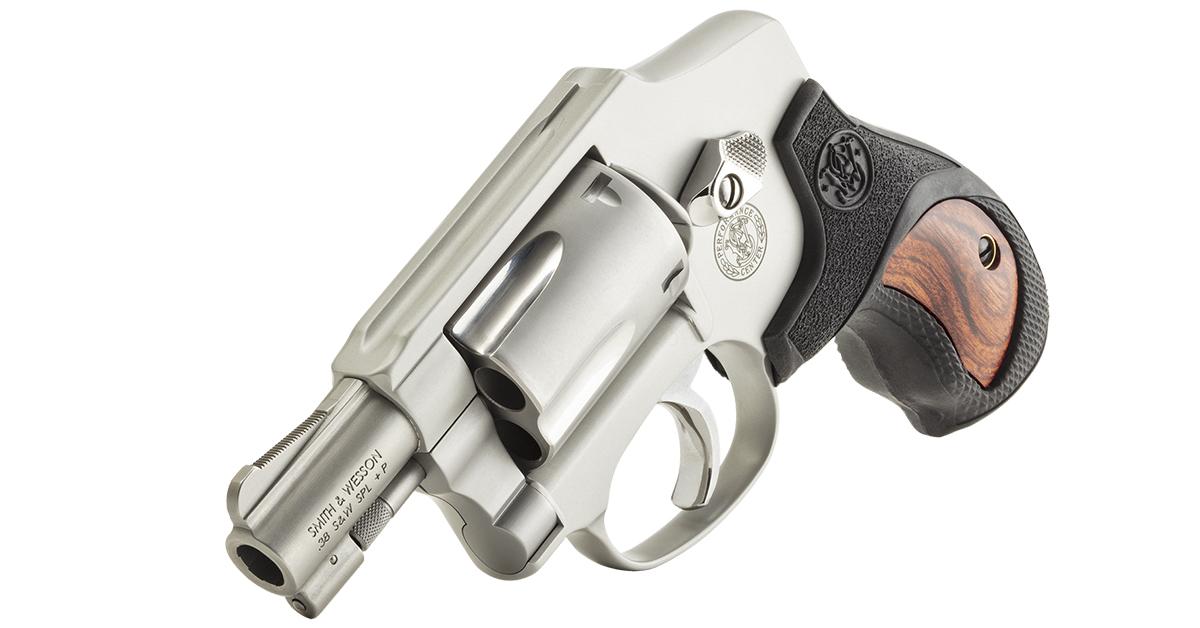
Almost all the current revolver manufacturers produce a snub-nose, or short-barrel revolver. Long a favorite of police officers, these often serve as backups to their issued sidearm. Either tucked in their backs or under a pant leg, they are not far from use in an emergency. Hunters and women may prefer a snub packed away for safety in a tree stand or in a purse.
I spoke of metallurgy. Titanium and aluminum are used extensively for lightweight carry. Stainless steel and Chromoly also provide options for a user wanting something other than blued steel. Steel is by far the most affordable option for the cost-conscious purchaser.
Cartridge choices are ample, ranging from the .22 LR to the absurd .500 S&W. Most people choose .38 Special and .357 Magnum with a snub-nose revolver. It’s enough to protect, but not too much to destroy your hand on firing.
Smith & Wesson 642 Performance Center J Frame
My sample of wholesome stubbiness is the super awesome Performance Center Model 642 J-Frame in .38 Special +P. The 642 lineup comes with aluminum frames and stainless-steel barrels and cylinders. All Model 642s are chambered for .38 Special +P. There are options with plain grips, pink grips, and Crimson Trace laser grips.
What makes my 642 special? The Performance Center is S&W’s in-house custom shop. Each firearm that goes through this shop gets treated with trained and skilled hands. Parts are buffed. Triggers are worked, and accuracy is improved.
The 642 Performance Center receives the following upgrades:
- Tuned action
- High Bright polished cylinder flutes
- High Bright polished thumbpiece and side plate screws
- Custom, synthetic grip with wood inserts
- Chrome-plated and polished trigger
- Cylinder cut for moon clips
Performance
Off to the range I go.
Using the new Walker’s Disrupter ear protection offered comfort and proper sound safety. Two ear buds are provided in a new, smaller case that activates the Bluetooth connectivity when open. Placing the ear buds in the case and closing the lid automatically begins charging them. Connecting to your device of choice is simple. Different-size ear foams allow for a personalized fit.
Back to the revolver, the big question is how did it shoot? Quite honestly, it met my expectations. Standard loadings felt good in the hand. The rubber grips absorb recoil well and help the shooter keep positive control. Sights are easy to pick up, point, and shoot. At my standard seven yards, grouping different ammunitions was not difficult. Even +P rounds did well, although you can tell they are loaded toward the heavy side.
The winning group of the day was Hornady Critical Defense Lite .38 Special 90-grain FTX grouping at .955 inches and averaging 2.128 inches. I put together a load using Speer Gold Dot bullets and Blue Dot powder with Hornady brass. I shot very consistent groups with these, averaging the best groups of 1.235 inches.
- Handloads: 140-gr. Speer Gold Dot ,1.235 in.
- Federal American: 130-gr. FMJ 2.207 in.
- Hornady American: 125-gr. XTP JHP 2.325 in.
- Hornady Lite: 90-gr. FTX, 2.568 in. (one group of .955 in. in second group with four touching and one flyer)
- Black Hills +P: 125-gr. XTP JHP, 3.101 in.
- Federal Punch +P: 120-gr. JHP, 3.363 in.
How Do I Carry It?
I’ve been using the 642 for my CC purposes over the past couple months and must say I truly enjoy the gun. It is the first firearm I can appendix carry comfortably using the Crossbreed Super Tuck. I also use the Crossbreed Ankle Holster. This holster is comfortable to wear to church under dress pants and jeans.
My favorite way to carry the gun, though, is to slip it into my front pocket — a benefit of the shrouded hammer design. It fits great and there is no worry about it being seen.
The best option that I find with the 642 Performance Center is that it is cut for moon clips. I carry an extra moon clip in my non-dominant hand pocket just like I would with a magazine. With the gun being limited to only five shots, it’s nice to have those extra rounds.
On Target
Portability is great. Lightweight at 14.5 oz. empty and 16 oz. loaded makes for easy carry. Accuracy is excellent for a 2-in. barrel. Again, I enjoy having the moon clips for easy loading and reloading after firing.
Off the Mark
Five shots! You only get five, so prepare for that if you generally carry a semi-auto pistol. The rubber grip feels great and absorbs recoil, but it snags on soft materials. I found this to be an issue when carrying on my ankle and trying to pull up my pant leg up. The +P loads are uncomfortable in the hand, for sure, if you send too many rounds downrange. Save those for your concealed carry work!
S&W Performance Center Model 642 J-Frame Specifications
- Caliber: .38 S&W Special
- Size: small
- Action: double-action only
- Barrel Length: 1.88 in.
- Barrel Material: stainless steel
- Frame: aluminum
- Capacity: 5
- Color/Finish: silver
- Trigger Pull: 10 lbs.
- Safety: none
- Sights: integral
- Grip: wood/synthetic
- Width: 1.3 in.
- Length: 6.31 in.
- Height: 4.3 in.
- Weight: 14.5 oz.
- MSRP: $639
- TESTED: Henry Lever Action Supreme - February 2, 2026
- FIELD TEST: Savage Axis 2 - July 25, 2025
- TESTED: CVA Cascade Varmint Hunter - February 24, 2025

